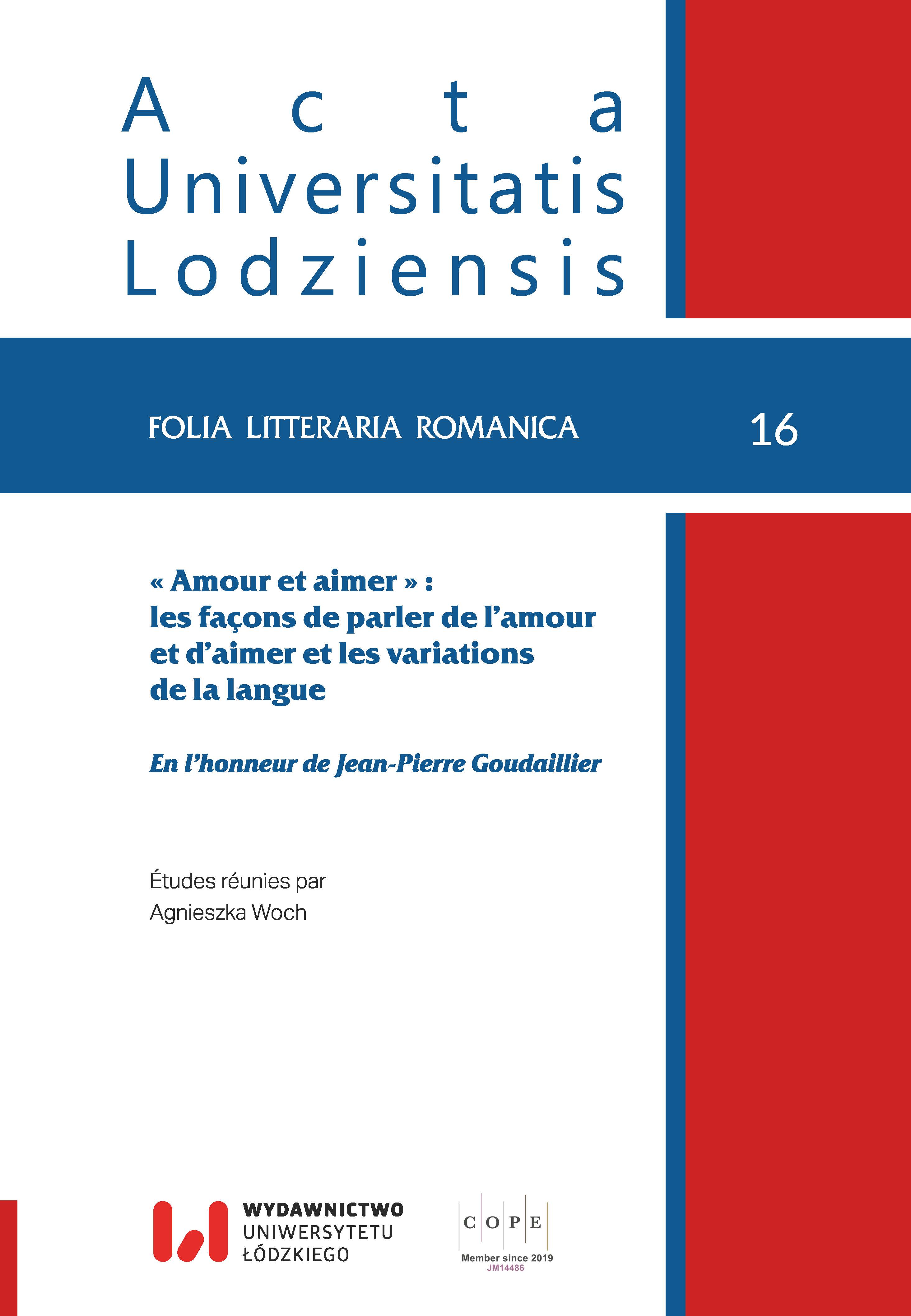Tomber amoureux et zakochać się décrivent-ils la même réalité ?
Do tomber amoureux and zakochać się Describe the Same Reality?
Author(s): Joanna CholewaSubject(s): Philology
Published by: Wydawnictwo Uniwersytetu Łódzkiego
Keywords: tomber amoureux; zakochać się; invariant; collocation; prefix; meaning analysis; intensity; change of state
Summary/Abstract: The aim of the article is to analyze the French phrase tomber amoureux and the prefixed Polish verb zakochać się. The analysis aims to see if the semantic contents of the two verbs, which result of their constructions, are exactly the same. The invariant of tomber, which has both locative and non-locative / abstract uses, is complex and includes two basic meaning elements: downward movement and contact, which the language selects according to the given use. On the other hand, the phrase tomber amoureux can be analyzed as a collocation, where tomber is a collocator. The Polish predicate is built on the basis of kochać (psychological verb), with the prefix za-. Polish attaches considerable importance to the prefix, the meaning of which is added to that of the verbal base. The analysis reveals that tomber amoureux expresses a change of state and underlines the beginning of the action, while zakochać się emphasises the intensity of the feeling to which the verbal base refers.
Journal: Acta Universitatis Lodziensis. Folia Litteraria Romanica
- Issue Year: 2021
- Issue No: 16
- Page Range: 57-65
- Page Count: 9
- Language: French

